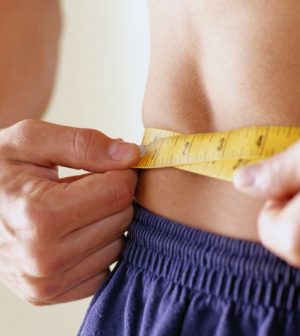- Could Your Grocery Store Meat Be Causing Recurring UTIs?
- Are You Making This Expensive Thermostat Error This Winter?
- Recognizing the Signs of Hypothyroidism
- 10 Strategies to Overcome Insomnia
- Could Artificial Sweeteners Be Aging the Brain Faster?
- Techniques for Soothing Your Nervous System
- Does the Water in Your House Smell Funny? Here’s Why
- Can a Daily Dose of Apple Cider Vinegar Actually Aid Weight Loss?
- 6 Health Beverages That Can Actually Spike Your Blood Sugar
- Treatment Options for Social Anxiety Disorder
Science-Based Diet Tips That Really Work

There’s no shortage of good diet advice, but the following tips have scientific research to support them.
For starters, take the advice to never go shopping hungry one step further by eating a piece of fruit before you go. Researchers found this encouraged people to buy 25 percent more produce.
It’s always a good idea to limit snacking while watching TV, so never eat right out of the bag. This is even more important advice to heed when you’re caught up in the action of a program: The more distracting the show or movie, the less aware you are of how much you’re eating.
Most people know that it takes diet and exercise to lose weight. But a three-part approach may be even better. Staying in contact with a diet coach, just by phone, helped dieters in one study maintain a 10 percent weight loss.
Another study found that first learning maintenance skills for healthy eating — before any attempt to diet — led to greater weight loss success.
Here’s how to get smarter about weight loss before dieting:
- Learn about energy balance: calories in versus calories out.
- Learn about healthy portion sizes and how to be more active.
- Get in the habit of weighing yourself daily to monitor fluctuations and recognize regain.
- Make small but frequent lifestyle tweaks and practice more good-for-you habits.
- Develop a plan to deal with diet disruptions like restaurant buffets and holiday parties.
You might also do better on a diet that takes into account your unique needs. For instance, decide whether you would benefit more from a weight loss program that helps you work through an unhealthy relationship with food and improves a negative body image. Or one that emphasizes environmental changes, showing you how to improve the quality of your diet and boost physical fitness and your motivation level.
Pick and choose from all these successful techniques to find the right formula for you.
More information
The U.S. National Institute of Diabetes and Digestive and Kidney Diseases has more tips to help you choose a diet plan tailored to your needs.
Source: HealthDay
Copyright © 2026 HealthDay. All rights reserved.










